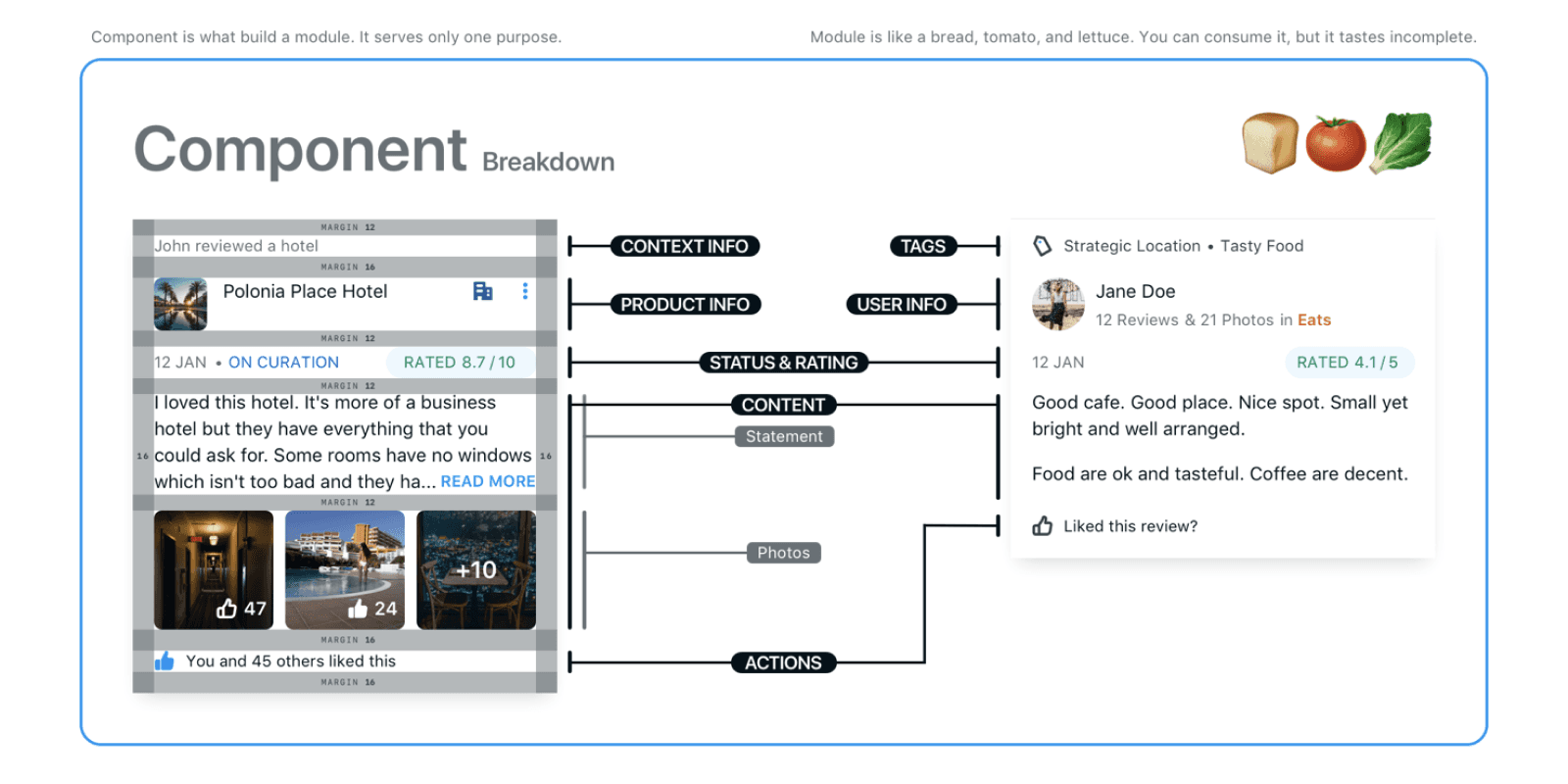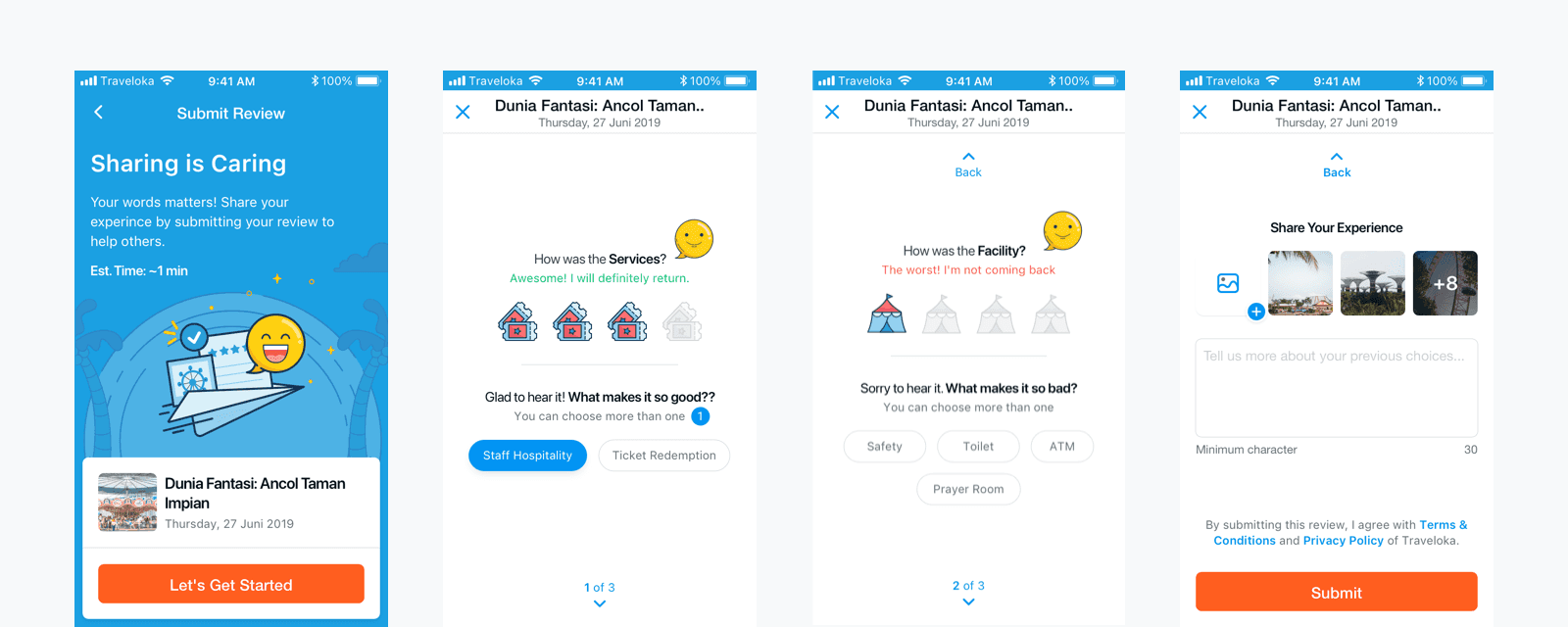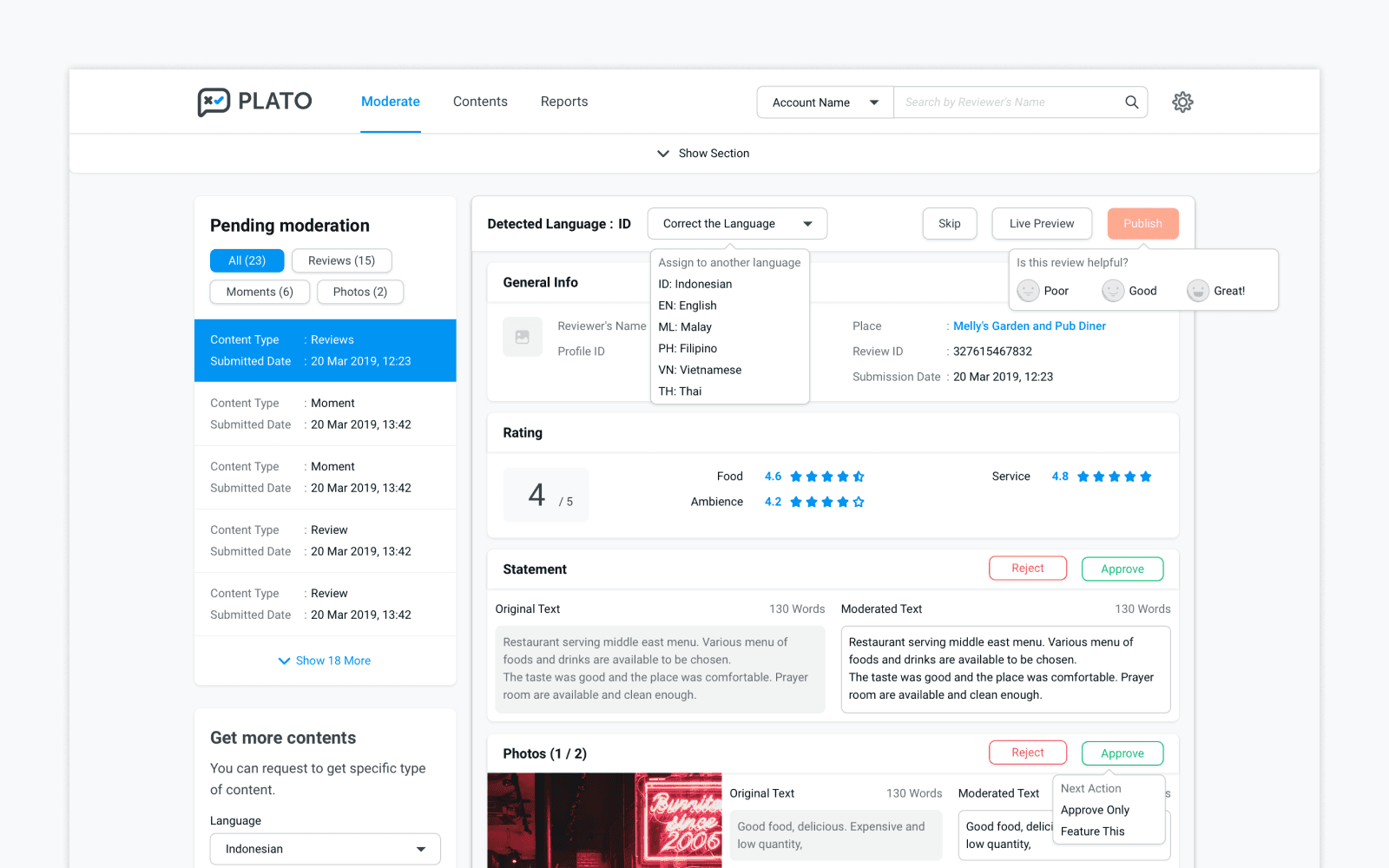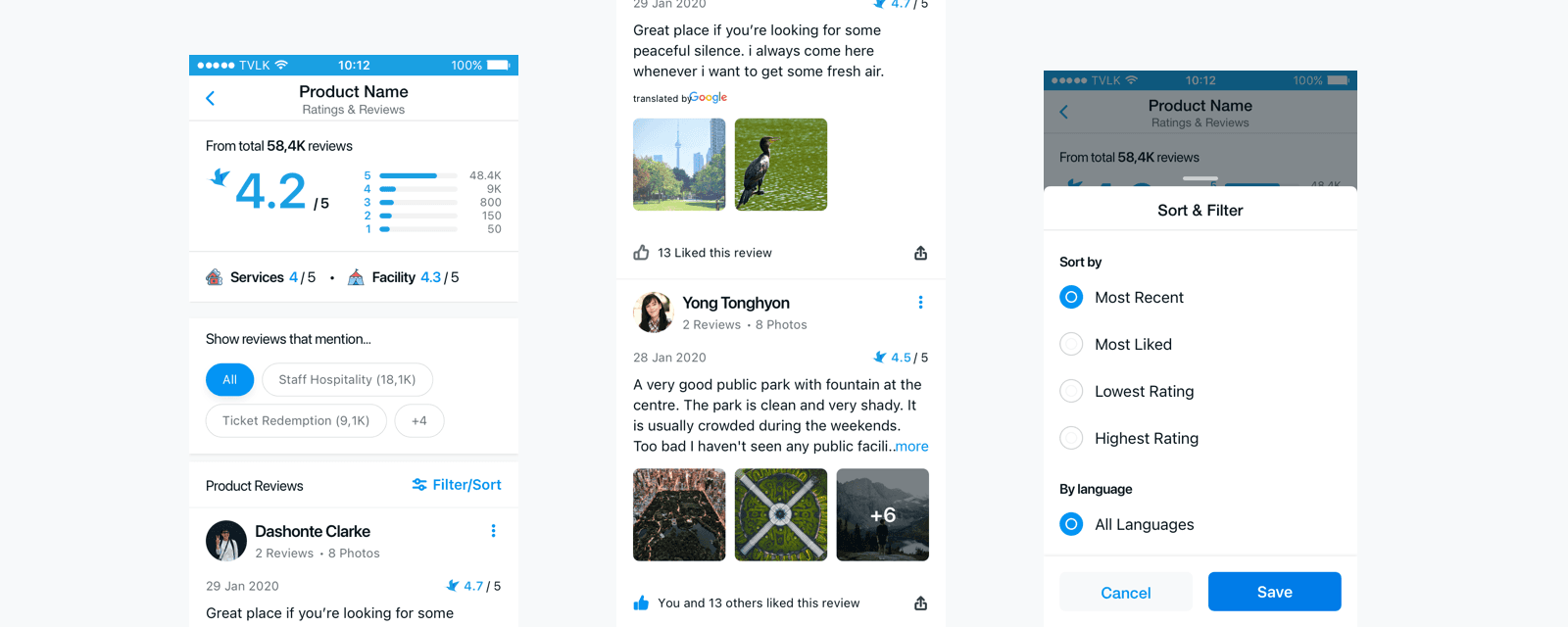I was involved in Platform Team. The team were responsible for building ecosystem that can support other business units, like Flight Team, Hotel Team, etc.
One of my responsibility is everything related to UGC, User Generated Content.
Identifying the problems
At the start of the project, I collected all visual resources across all products and dump it into one document. And I found out that each team has their own services for utilizing UGC (User Generated Content), including their own visual language. For example, we show user reviews in Bus and Hotel booking differently.
After that, I invited all respective designers and conducted design session to gather insights and feedbacks.
The goal of the session are:
To know what works and what don’t works in each product's UGC experience, and
To raise the awareness for all teams involved that we don’t have any standardization for UGC.
The main concern would be that, if it’s not standardized, this can bring problem where users need to learn new visual in every product, and the other problem would be cost of development to build, improve, and maintain UGC services.
. . .
Starting small
After compiling all the insights and feedbacks from other designers, I can start creating a universal design for UGC, I just need to take the best experience (what works) from each product.
First iteration I made is to define the component for review card, because it’s the smallest entity and it’s going to be implemented in multiple channels. This is the structure definition I came up with…

. . .
And keep scaling up the services
After few months of efforts, we managed to breakdown the UGC ecosystem into 3 parts:
Submission,
We created customized page for submission. We defined the type of submission. And each product can configure the whole submission flow according to their business needs.

Moderation,
We created internal dashboard for content moderators to review all the contents submitted into our platform.

Consumption.
We created one universal page that can be used in all products. The objective of this page is to show all reviews for our users related to a product/inventory they’re looking at.

All these definition wasn't just about the visual, but also the complete services including its technical implementation.
